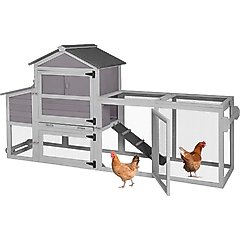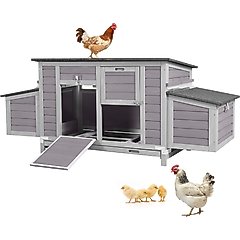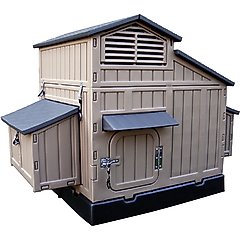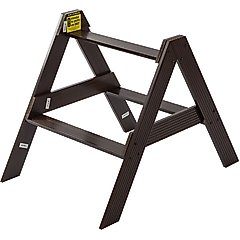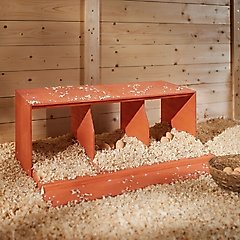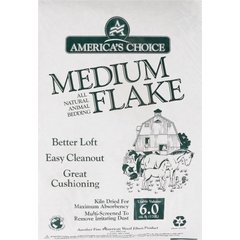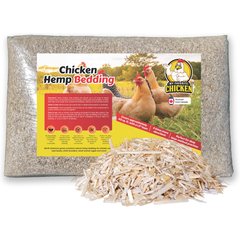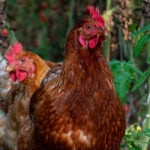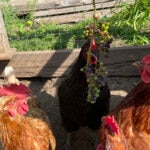How Much Space Do Chickens Need?
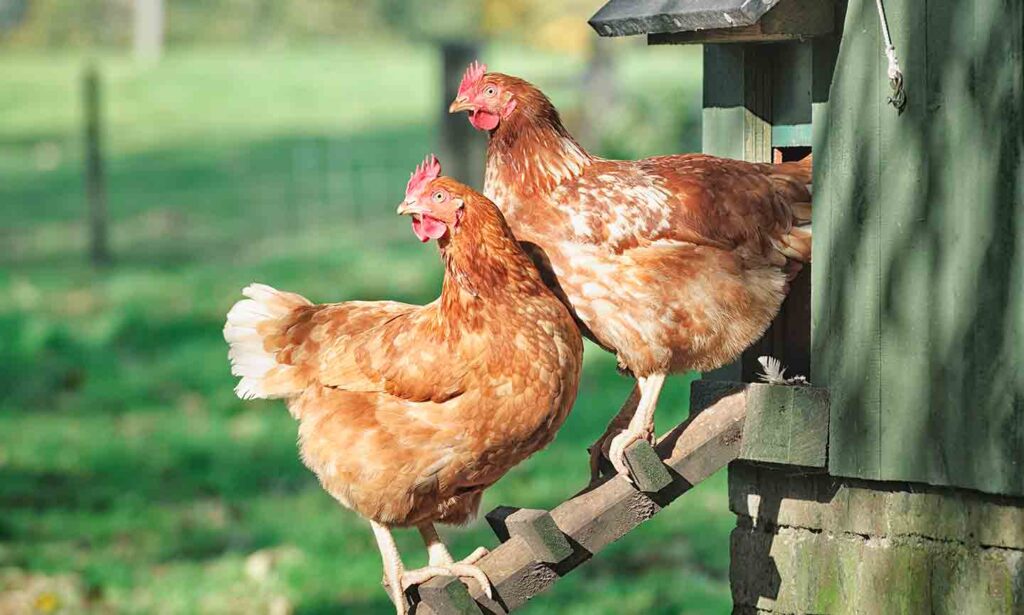
Photo by georgeclerk/Getty
There’s a growing trend of raising your very own small flock of backyard chickens—and for good reason. They’re adorable and surprisingly smart animals, are relatively low-maintenance, and they lay eggs you can add to your meals. But one of the first questions aspiring chicken parents often wonder, especially if they live in the city or suburbs, is whether they’ve got enough space for a chicken coop and run. Ahead, we’re covering how much room chickens need depending on the flock size, why coop size is so important, and other details to consider as you build out your chicken coop and run space.
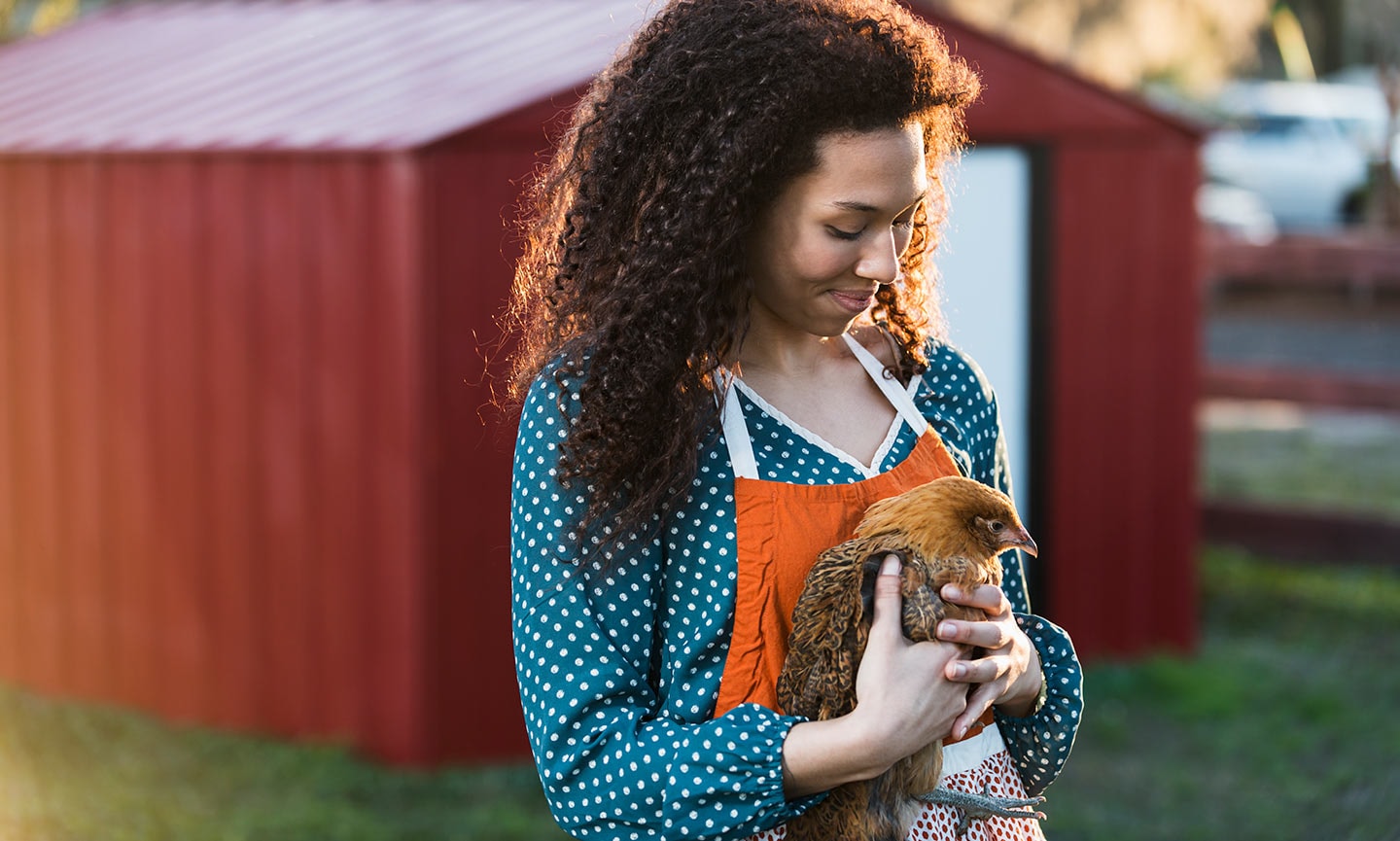
iStock.com/kali9
General Space Requirements for Keeping Chickens
So, how much space do chickens need in order to have a healthy, satisfying life? According to Lisa Steele, a fifth-generation chicken keeper in Maine and founder of Fresh Eggs Daily, there are three important elements you’ll want to consider: their coop size, roosting space and chicken run.
Chicken Coop
“In the chicken coop, rule of thumb is to allow for three to four square feet of floor space per bird,” says Steele. So if you have a small flock of three chickens, then you’d want a coop that’s 9-12 square feet. If you have a larger flock of, say, 10 chickens, then your chicken coop size should be 30-40 square feet. The higher the number of chickens, the more space you’ll need.
This rule applies to all chicken breeds, including both small and larger breeds. When possible, err on the side of providing your flock with more versus less space.
“Generally, all standard-size chickens need the same amount of space,” says Steele. “Bantam chickens require less due to their [smaller] size, but it’s still a good idea to stick to the minimum requirements, realizing that more space is better.”
Recommended Products
Roosting Bars
Chickens typically use their coop to sleep and lay eggs, Steele says, so it’s also very important to ensure they have enough space to roost. “Roost” refers to the act of perching or resting in an elevated position, typically on a horizontal bar, especially during sleep.
Chickens, like many birds, have a natural instinct to roost off the ground at night for safety and security. Ensuring they have adequate space for roosting bars in their coop allows them to engage in this natural behavior comfortably. Chickens need a minimum of 12 inches of bar per chicken, Steele notes.
“They also need nesting boxes in which to lay their eggs. You should allow for one 12-inch square box for every two or three hens. They’ll share,” she says.
Recommended Products
Chicken Run
Along with ensuring an adequate coop space that accounts for roosting bars, you’ll want to carve out adequate space for a chicken run.
“In the run, the bigger the better, since this is where your chickens will be spending the majority of their waking hours,” Steele says. “Allow for 10 square feet of space in the pen for each chicken.”
The only caveat would be if you’re home all day and can safely let your chickens range freely in an open, outdoor space. In this case, you can get away with a smaller pen, since you’ll only be keeping the chickens in it when no one is home.
Why Coop Size Matters
When raising chickens, making sure they have adequate space to roam, roost and sleep is paramount to their well-being. In addition to comfort, ensuring enough personal space for each chicken will help prevent the flock from becoming vicious with one another. Chickens have individual personalities, where a pecking order will naturally emerge within a group of birds.
“Chickens can be mean and will literally turn on each other if they are stressed or don’t have enough room,” Steele warns. “It’s important to give them plenty of outside space—either in a secure pen or run or free-range time—as often as possible.”
She adds that when chickens feel overcrowded (or are feed-restricted, meaning they aren’t getting enough food), they can exhibit some pretty aggressive behavior, such as pecking at each other’s feathers. In extreme cases, they may even start killing each other or exhibit cannibalism.
That said, make sure they’re getting at least the bare minimum of required square footage outlined above or, if possible, more than that. If you notice these behaviors in your chickens, it could indicate that they don’t have enough square feet of coop space or outdoor space.
Factors To Consider
While the general rule-of-thumb advice outlined above is a great place to start, the size of your chickens’ space depends on some additional factors.
- Flock size: Make sure that each individual chicken has enough personal space. Larger flocks will require more space versus small flocks.
- Confinement vs. free-range: If your chickens enjoy a supervised free-range life, then their enclosed outdoor run doesn’t need to be as large, since they’ll only be inside the run while you’re away.
- Chicken personalities: If you notice that one or more of your chickens has a strong personality and exhibits assertiveness, then you may need to factor this into the equation. Big personalities may require more personal space to keep the flock happy and safe.
- Breed size: From bantams to orpingtons to Jersey giants, chicken breeds come in many different sizes. Use the guidelines outlined above, making sure to go with the larger number for big chickens. And again, the more space the better; erring on the larger side is always a good idea.
- Room to grow: If you have plans to grow your flock of backyard chickens, account for that now so you can easily grow into a larger flock and keep your chickens happy.
Other Chicken Housing Tips
Ensuring your chickens have enough space, are getting adequate food and water, and are getting along are top priorities. But when building out their coop and run, it’s important to take the following factors into consideration, too.
Bedding
Your chicken coop needs some type of soft bedding on the floor, and you’ll want to apply the same in your chickens’ nesting boxes, too. Straw is a warm option for winter months or cold climates. Come summer, or in hot areas, Steele suggests using pine shavings or hemp bedding. Some hens are messy, even in their nest boxes. A routine cleaning regimen, including adding new bedding and removal of debris from nests, helps keep your hens happy and ensures your eggs are clean too.
Recommended Products
Food and Water
Chickens need their feed and water just like any other animal, but do be mindful about where it’s stored. Steele says that she keeps both food and water outside of the coop to prevent moisture and mold from occurring.
“My chickens eat outside every day, year-round. Feed just attracts rodents and flies,” Steele explains. “Having a covered area outside where you can set up a feeding station as well as a dry dust bath area will make your life a lot easier.”
Cold Weather
Chickens are resilient creatures who can tolerate cold weather, but it’s still important to help keep the temperature somewhat regulated.
“If you live in a cold climate, some breeds that are larger bodied with small combs will do better in the cold,” Steele says. “Heating your chicken coop is going to be unnecessary in 99 percent of cases. Unless your temperatures stay below zero for long periods of time in the winter, your chickens aren’t going to need heat.” Plus, heaters can be a fire hazard, she points out.
She says that situating your chicken coop facing south in full sun will go a long way towards keeping the space warmer for your flock. They also generate body heat as they sleep, which helps keep them warm.
Some extra steps you can take to create a cozy coop include:
- Adding heavy drapes on the windows that you can close at night
- Using a nice thick layer of straw on the floor
Hot Weather
While chickens tend to tolerate cold weather like true MVPs, they tend to not fare so well in scorching temperatures. If you live in an area that has hot summers, Steele says it’s important to specifically choose heat-hardy breeds. Those with large combs and sleek bodies can handle the heat far better than their heavier cousins, Steele explains.
Heat-tolerant chicken breeds include:
- Leghorns
- Welsummers
- Rhode Island Red
- Orpingtons
- Plymouth Rock
- Sumatra
- Brahma
Even heat-hardy chickens require being cooled down when the temps soar, though. If your temperatures are generally in the 80s and above all summer long, investing in a fan for your chicken coop isn’t a bad idea, Steele says. More fresh water access, adding electrolytes, plenty of shade and lots of ventilation in the coop will go a long way towards keeping your chickens cool.
Additionally, birds will be more apt to eat during the cooler times of the day (early morning and late evenings), so be prepared to adjust their feeding times during the hot summer months.
In humid climates, the relative humidity, or “how hot it feels” outside, needs to be accounted for when monitoring your chickens for heat stress.
Ventilation
No matter the climate, ventilation is important year-round. Steele notes that chicken poop contains ammonia, which isn’t just smelly but can quickly overtake your flock. She says, “Windows that you can open and close—weather dependent—as well as vents for good air flow up high are important.” Fans can be a helpful addition to keep air moving in the coop for fresh air as well as cooling effects during the heat of the day.
Predators
Another vitally important thing to consider when building your chicken coop is making sure it’s set up in a way that keeps predators out. Preventing access on the ground as well as from the air is crucial. And be aware that some dangerous critters are smarter than a chicken keeper might expect.
“Raccoons can open many types of latches and locks; foxes, coyotes and dogs can rip through chicken wire and also dig underneath; and weasels can squeeze through an opening larger than an inch in diameter,” Steele says. “Making sure that your latches are secure, your fencing is made of welded wire, and the windows are covered in welded wire as well as regular window screens is important.”
Birds of prey can also become a concern for chicken flocks that have large outdoor access. Installing netting above your chickens’ outside spaces is another safety measure to keep your flock safe and secure when you’re not around.
Finally, while wild birds aren’t necessarily considered chickens’ predators, keeping your chicken enclosure away from wild bird feeding and bathing areas is recommended, because it helps minimize disease transmission.
Keeping chickens is a highly rewarding experience. While the initial chicken coop setup does require some foresight and careful planning, once you’ve got your coop and run all set up (and given your feathered friends names, of course), you’ll be able to get into a good groove and enjoy this low-maintenance creature.
The following experts contributed to this report: Lisa Steele, a fifth-generation chicken keeper in Maine and founder of Fresh Eggs Daily. This content was medically reviewed by Chewy vets.
